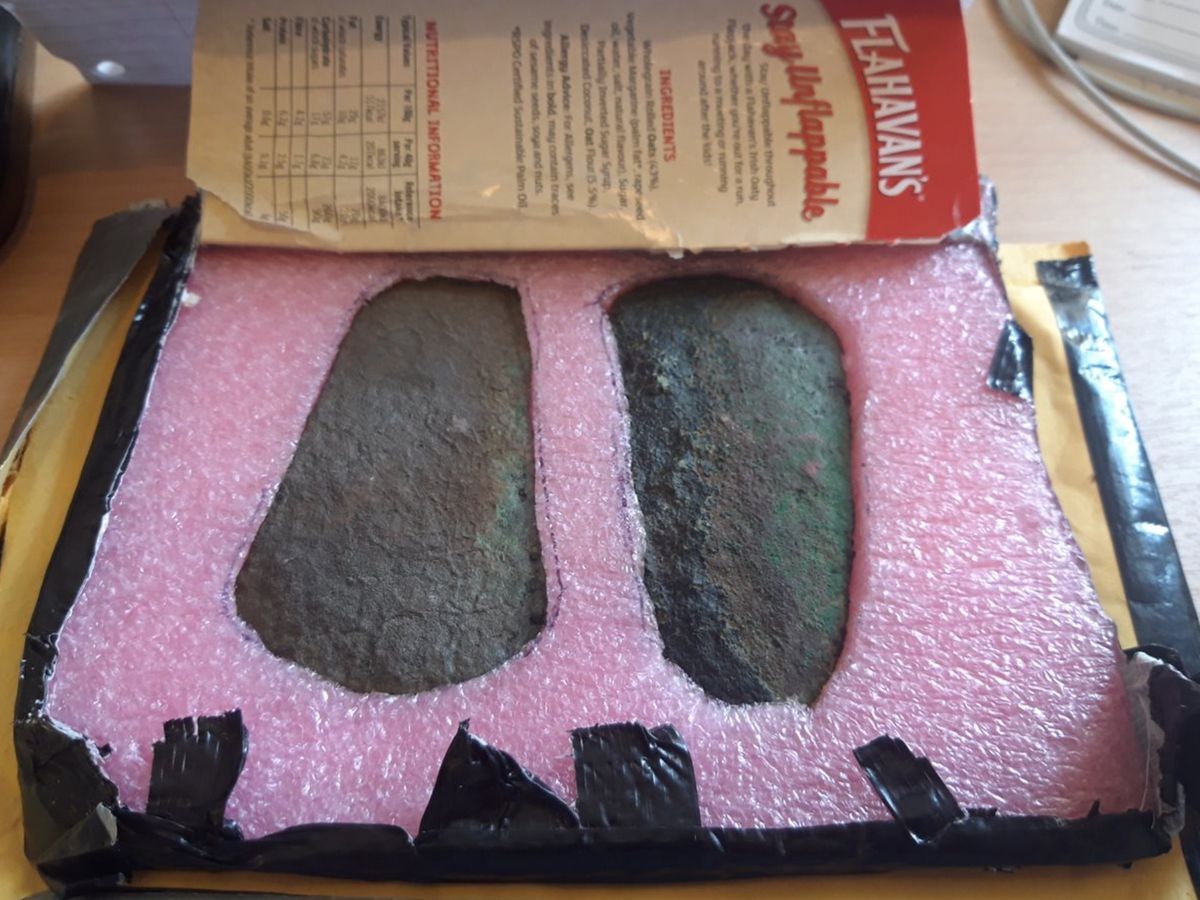Irish law prohibits searching for archaeological objects with a metal detector without written permission from the government
??? WHY? this is the most ridiculous thing I have read so far.
I’m curious as to how and why this became a law in Ireland, maybe there’s a justifiable reason for this but without further context this is baffling to say the least
It totally does make sense. Amateurs with metal detectors are in most cases not really qualified to to archeological digs. And they really are not able do document them properly. Archeology is not only about the artifacts, but also about how they were found. Take a roman coin: If you buy it on Ebay or find it in the street, it is a roman coin. But if you find a roman coin f.e. on an ancient battlefield, you can use it to date the battle. That context gets lost when archeology is not done properly.
Also their finds are vanishing mostly into private collections. That really doesn’t matter with random coins, but f.e. the sky disc of Nebra, one of Europes most stunning bronze age finds, was dug up during an illegal private metal detector search and they then tried to sell it on the black market. So it does make sense to ban metal detector hunting.
was dug up during an illegal private metal detector search
People just still do it, but don’t report anything. I don’t think the average illegal „hunter" is interested in finding a treasure and illegally selling it on black market, making his potential punishment even worse. In Germany it’s on the federal state to create the legal basis for a lot of things which you probably know, muelltonne, metal detecting is one of these. This makes the legal situation even more complicated with some states completely prohibiting and some allowing it if the land owner agrees. The Nederlands on the other hand have the same legal situation in the whole country, as far as I know, where searching for archaeological objects is legal with very few bureaucratic restrictions and a nation-wide app for registrating seekers and uploading their findings to the authorities. They’re happy with that.
And then there is the whole issue with private property - even if you’re not allowed to use metal detectors, there is nothing preventing you from digging holes in your own garden. But that is not what most people are doing - most suburbs are getting an archeological survey before they are build and then the construction will destroy everything else. So most metal detectors are running around on fields, through woods, some with private owners, some in state ownership
It may be an anti-looting measure. If you are caught artifact-hunting without a permit, it’s assumed you were doing it for profit.
that makes sense
hopefully Ireland’s government puts out a statement or something to declare that this is an exception seeing that both the farmer and discoverer sent the artifacts in good faith
I don’t know about Ireland, but in Germany ‘treasure hunting’ with a metal detector is prohibited as well. Artifacts residing in the ground are property of the state, unlike in e.g. England where afaIk they belong to the land owner. Additionally, ‘treasure hunting’ destroys the archaeological find situation, as the metal artifacts are digged out usually no proper documentation is done while destroying the placement an organic surrounding artifacts.
Most likely to discourage people from doing that.
Now why would they want to discourage it? So people are not A) digging artifacts out of the ground, because their surrounding area is as important as the artifact itself. The reason being, it possibly tells you something about the time period and circumstance of why it is there in the first place. And B) so private people are not just selling treasures that belong to all. To quote the one guy who might be the worst archaeologist: “it belongs in a museum”
Besides the other reasons listed, it may also be dangerous. Don’t know about Ireland, but here in Germany there’s a lot of unexploded bombs from WWII underground that might go off if manipulated.
My thought is that the law is a remnant of Ireland’s occupation, but that’s a total guess.
Don’t think they had laws about artefact hunting with the use of metal detectors 100-300 years ago. This law is from 2014 lol.
The patent for metal detectors was submitted in 1881. The occupation ended in 1922.
Patent does not mean existing or widespread. Apple had a patent for airbags in their phones and have for the past 15 years. I’ve still yet to see them materialise.
Regardless, Ireland’s law is from 2014. Blaming Britain is just brain-dead. Believe it or not, things happen in Ireland that are completely unrelated to the UK’s past.
E: the first metal detector patent was in 1925.
deleted by creator




